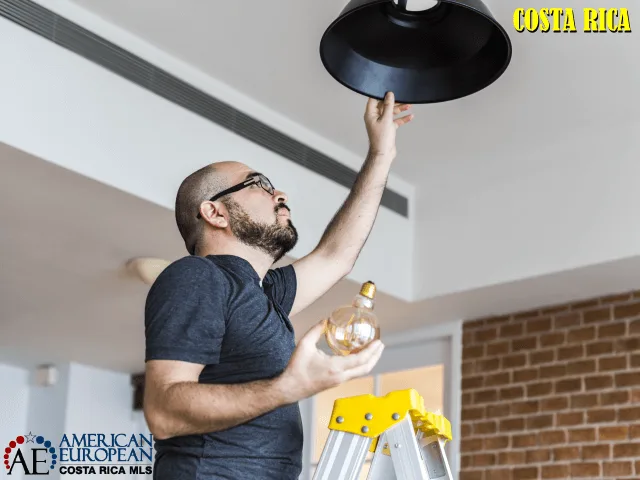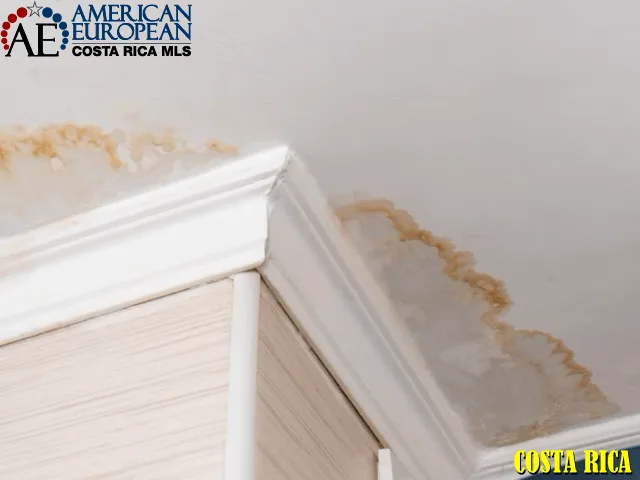Estimated Reading Time: 5 Minutes
When you rent in Costa Rica, you always have to make a security deposit. Do you want to learn more about the security deposit? This article focuses exclusively on security deposits for long-term renting. Information about short-term and vacation rentals is not included here.
Among the various aspects of the rental process, the security deposit is a vital component that protects both landlords and tenants. Understanding how the security deposit works in Costa Rica can help ensure a smooth and transparent rental experience for all parties involved.
Retirees, business professionals, and executives of large companies are searching for rental properties in Costa Rica online every day. Increasingly, people are relocating to Costa Rica due to the country’s expanding economy, and those seeking a better lifestyle are looking for a house for rent in Costa Rica. Many want to rent until they find the perfect location to purchase a house. Let me tell you a bit about the security deposit, as you’ll be required to pay it as soon as you sign a lease agreement.

What Is a Security Deposit?
A security deposit is a sum of money paid by the tenant to the landlord at the beginning of the rental agreement. This deposit serves as a financial safeguard for the landlord against potential damages to the property, unpaid rent, or breaches of the rental contract. In Costa Rica, the security deposit is typically equivalent to one month’s rent, although the exact amount can vary depending on the property and the landlord’s discretion.
Before signing the lease agreement, inspect the property for any damage or necessary repairs to avoid being responsible for them. Minor repairs are always the responsibility of the tenant. The landlord should do extensive repairs and general maintenance of the unit.
If the tenant has a pet, the landlord may charge a pet deposit in addition to the regular security deposit.
Legal Framework and Regulations
Costa Rican rental laws are governed by the Urban and Suburban Lease Law (Ley General de Arrendamientos Urbanos y Suburbanos). This law outlines the rights and obligations of both landlords and tenants, including stipulations regarding the security deposit. According to the law:
The security deposit must be returned to the tenant at the end of the lease term, provided there are no damages to the property beyond normal wear and tear, and all financial obligations have been met.
The landlord is typically required to return the deposit within 15 business days after the lease ends, unless otherwise agreed upon in the rental contract.
>If any deductions are made from the deposit (for example, to repair damage or cover unpaid bills), the landlord should provide an itemized statement detailing the expenses.
Common Practices and Considerations
Although the law provides clear guidelines, rental practices in Costa Rica can vary in informal or rural settings. Some landlords may request a larger security deposit, particularly when renting to foreigners or for luxury properties. In such cases, ensure that the terms of the deposit and its return are clearly outlined in a written lease agreement.
Additionally, tenants are advised to conduct a thorough inspection of the property before moving in and to document any existing damages with photos and a checklist signed by both parties. This documentation must be included in the lease agreement, as it can be crucial in resolving disputes over the property’s condition at the end of the lease term.
Rent for 3 years
By law, a rental agreement is for 3 years, although most agreements have a one-year termination clause, in case either party is not satisfied.
Lease agreements are typically denominated in either US dollars or Colones. Bring cash when you want to take a home for rent off the market. U.S. checks are not accepted, and most landlords cannot charge your credit card.
Rent increase
Most lease agreements in Costa Rica for rent are signed for a minimum of 1 year. They are extended automatically for two more years. After the third year, a 5% rent increase may apply if the lease is denominated in US dollars. And a 15% increase if the lease is in Colones. Be aware of the amount of the security deposit you initially paid when renting.

Challenges and Disputes
While many rental arrangements proceed smoothly, disputes over security deposits are not uncommon. Some landlords may delay returning the deposit or unjustifiably withhold it. In such cases, tenants have the right to seek legal recourse through the local courts. However, this can be a time-consuming and costly process, especially for foreigners unfamiliar with the Costa Rican legal system.
To avoid conflicts, both parties should maintain open communication and follow best practices for documentation and contract clarity. Tenants should also keep receipts of rent payments and utility bills to demonstrate compliance with the lease terms.
Often, landlords do not return the deposit because there are damages that are normal wear and tear, such as
- Painting the inside of the rental unit
- Roof repair
- Appliances that stop functioning
I suggest these issues should be included in the lease agreement from the beginning.
Conclusion
The security deposit is a vital part of renting a home in Costa Rica. It provides security for landlords while ensuring tenants’ accountability. Although the legal framework is designed to protect both parties, in Costa Rica, the tenant is better protected than the landlord. It is key to a successful tenancy in Costa Rica to be informed about your rights and responsibilities. Before signing an agreement, learn what happens to your security deposit.
I probably shouldn’t recommend this here, but: has the communication with the landlord not been good during the lease period? Are you now concerned about not receiving the security deposit back, even though the unit is in perfect condition? Then consider using this deposit as last month’s rent.


















